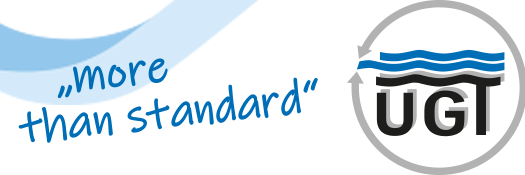Soil-Vegetation-Atmosphere transports are the key drivers for all processes in the environment. The aim is to show methods and solutions to enable environmental monitoring with the latest developments. The workshop includes scientific presentations and practical demonstrations. Lysimeters are a proven tool for ecosystem studies. They are the reference system for matter and energy fluxes in rather undisturbed systems. Big enough to provide a root space for representative plant stands, they measure precise and detailed enough to describe fluxes at high resolution. Pesticide leaching, and greenhouse gas emissions can be quantified for the well-defined lysimeter volume. Advanced measurement tools allow to separate processes in water and gas transfer, while the lysimeter forms the integral frame. Isotopic compositions help to distinct sources of greenhouse gas emissions. We all are facing the impacts of climate change. We must manage the risks and therefore monitoring and measuring is most important!
Sap flow and plant water potential measurements allow to separate through plants from soil surface fluxes.
Parallel measurements, pF determination of the soil and particle size distribution enable a complete knowledge of the specific environment. The workshop will give insight on the latest research on lysimeters with a specific focus on process separation with modern analysis tools.
Be part of the lysimeter story and learn more about the latest tools for lysimeter research. Get in contact with other researchers on lysimeter research.
If you are interested to participate please send an email to sascha.reth@ugt-online.de

Program
February, 7th
09:00
REGISTRATION
10:00
WELCOME AND INTRODUCTION; Christina Siebe, UNAM, Mexico
10:30
THE LYSIMETER RESEARCH GROUP – AN INTERNATIONAL NETWORK FOR LYSIMETER RESEARCH, Peter Cepuder, BOKU Vienna, Austria
11:15
LYSIMETER TECHNIQUE, OVERVIEW AND CASE STUDIES, Sascha Reth, UGT Germany
12:00
Lunch
13:00
LYSIMETER – UNDISTURBED EXCAVATION OF MONOLITHS – DIFFERENT TOOLS, Sascha Reth, UGT, Germany
14:00
VISIT OF THE NEW LYSIMETER STATION UNAM
16:00
THE NEW LYSIMETER STATION UNAM – TECHNICAL SOLUTION
19:00
Mexican evening
February, 8th
09:00
CRITICAL ZONE OBSERVATORY VALLE DEL MEZQUITAL, Christina Siebe, UNAM, Mexico
09:45
FATE OF ATRAZINE IN WASTEWATER IRRIGATED AGROECOSYSTEMS, Blanca Prado Pano, UNAM, Mexico
10:30
coffee break
11:00
RESISTANCE DISSEMINATION IN SEWAGE IRRIGATED SYSTEMS, Kathia Lueneberg, UNAM, Mexico
11:45
POLLUTANTS – ANTIBIOTIC RESISTANCE – PATHOGEN INTERACTIONS IN A CHANGING WASTEWATER IRRIGATION SYSTEM IN MEXICO, Christina Siebe
February, 9th
9:00 – 18:00
Excursion to the VALLE DEL MEZQUITAL AND HISTORICALPLACES NEARBY
Cooperation Hotels
1. Hotel Paraíso Radisson
Cúspide No. 53, Parque del Pedregal, 14020, México, D.F. (Perisur)
Tel. (55) 56 06 42 11
Tarifa 2019 – $1,368.50 por noche y por habitaciòn
2. Hotel Camino Real Pedregal
Periférico Sur No. 3647, Col. Héroes de Padierna, México D.F. 10700
Tel.: + 52 (55) 54 49 36 50, Fax: + 52 (55) 54 49 36 58
Tarifa 2019 – $1,356.60
3. Hotel Royal Pedregal
Periférico Sur 4363, Jardines de la Montaña, 14210, México, D.F.
Tel. (55) 54 49 40 00
Tarifa 2019 – $1,262.00
4. One
Periférico Sur 5530, Colonia Pedregal de Carrasco, 04700,
Ciudad de México
Tel. (55) 4749 1900
Habitación Sencilla $1,259.02, Habitación doble $1,487.50
200 USD workshop fee, for students 100 USD

